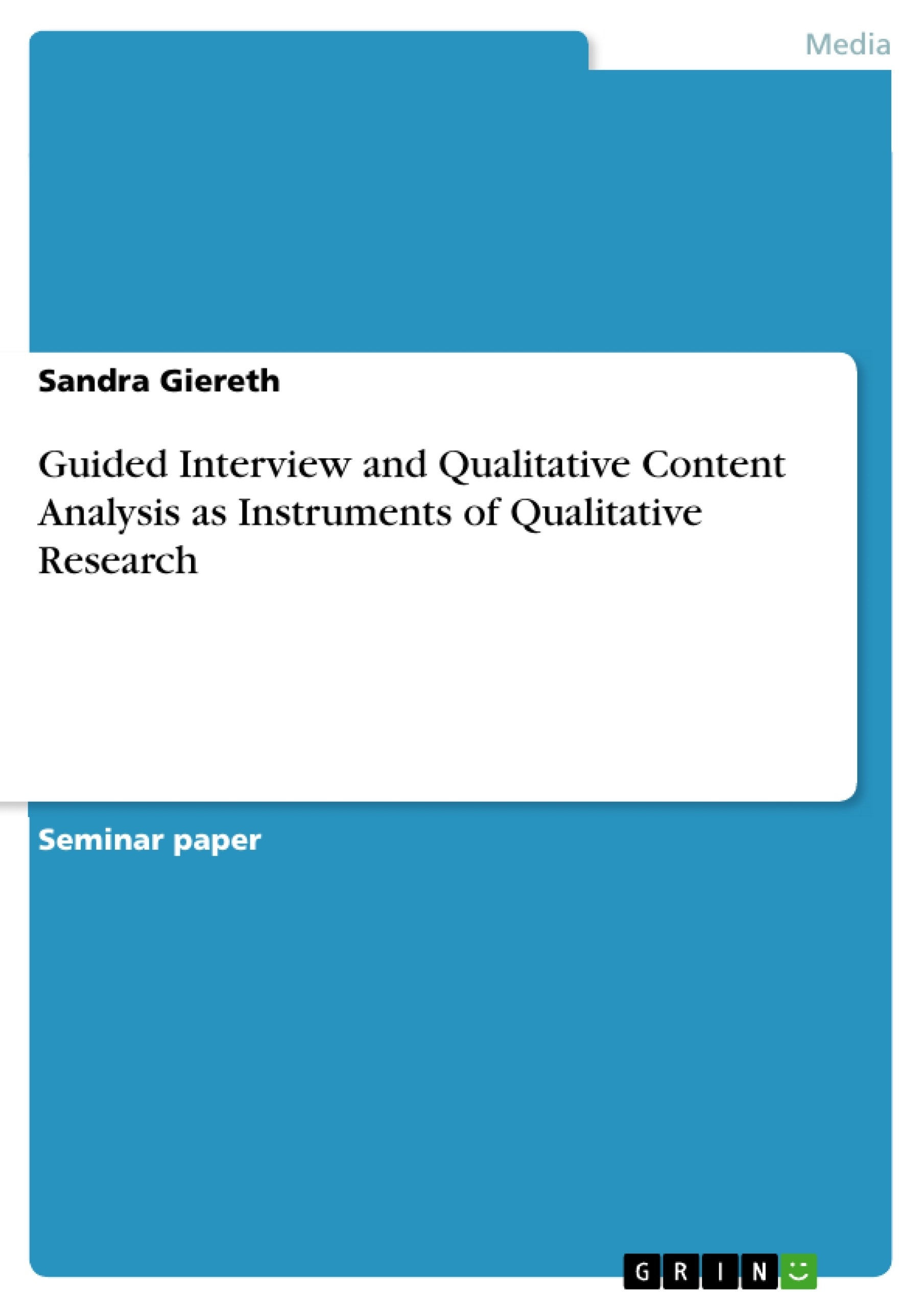Qualitative research methods have become increasingly important in recent years. They are used especially in communication science, but meanwhile also in psychology, educational science or sociology. Due to the increased resonance, the present work deals more closely with the topic of qualitative research. The focus here is primarily on the area of guided interviews and qualitative content analysis according to Mayring.
For this purpose, the following procedure is followed: Under point 2 the Qualitative Research is presented in the overview and is distinguished from the Quantitative Research. Subsequently, the qualitative approach is considered more specifically and the meaning of the qualitative research for the organization development is worked out. Point 3 of the work deals with the topic of the guideline interview as instrument of the qualitative data collection. For this the concept of the interview is explained first and guide interviews as special form with their advantages and disadvantages are represented. In addition to the presentation of typical characteristics, instructions for the preparation and execution of the interview are given.
For the evaluation of the collected data the approach according to Mayring is presented in section 4. For this purpose, the term Qualitative Content Analysis is defined and its characteristics and objectives are elaborated. Furthermore, typical techniques of Qualitative Content Analysis are presented. The point 5 refers - referring to the presented Qualitative Content Analysis - again explicitly to the quality criteria. For this purpose first the meaning of the classical quality criteria objectivity, reliability and validity are seized and afterwards supplementing special content-analytical quality criteria are pointed out. The thesis concludes with a summary and a critical appraisal of the topic.
Table of Contents
- Introduction to the topic and structure of the work.
- Qualitative research at a glance
- Qualitative versus quantitative research
- Importance of qualitative research in organisational development
- The guideline interview as a means of qualitative data collection
- Interviews at a glance
- The guided interview at a glance
- Creation and conduct of guideline interviews
- Qualitative content analysis according to Mayring
- Qualitative content analysis: Concept and objectives
- Techniques of qualitative content analysis
- Special techniques of qualitative content analysis
- Quality criteria of content analysis
- Classic quality criteria
- Content-analytical quality criteria
- Summary and critical appraisal.
Objectives and Key Themes
This work provides a comprehensive overview of qualitative research, focusing specifically on guideline interviews and qualitative content analysis according to Mayring. It aims to present these research methods in detail, highlighting their significance in various disciplines, particularly in organizational development.
- Differentiating between qualitative and quantitative research methods.
- Exploring the importance of qualitative research in organizational development.
- Analyzing the guideline interview as a tool for qualitative data collection.
- Examining the principles and techniques of qualitative content analysis.
- Evaluating the quality criteria for qualitative content analysis.
Chapter Summaries
- The introduction provides a brief overview of the topic and outlines the structure of the work. It highlights the growing importance of qualitative research in various fields and explains the focus of the study on guideline interviews and qualitative content analysis.
- Chapter 2 presents a comprehensive comparison between qualitative and quantitative research methods. It examines their definitions, data collection techniques, and their respective roles in understanding experience and behavior. It also highlights the significance of qualitative research in organizational development, emphasizing the need for understanding employee perspectives and overcoming resistance to change.
- Chapter 3 delves into the guideline interview as a crucial instrument for qualitative data collection. It defines the concept of interviews and explores the unique characteristics of guideline interviews, outlining their advantages and disadvantages. This chapter also provides valuable insights into the creation and implementation of effective guideline interviews.
Keywords
This work primarily focuses on qualitative research, guideline interviews, qualitative content analysis, organizational development, and evaluation research. It explores the methodologies and applications of these concepts, analyzing their roles in understanding human experiences and behaviors, particularly within organizational contexts.
- Quote paper
- Sandra Giereth (Author), 2011, Guided Interview and Qualitative Content Analysis as Instruments of Qualitative Research, Munich, GRIN Verlag, https://www.grin.com/document/1168285




